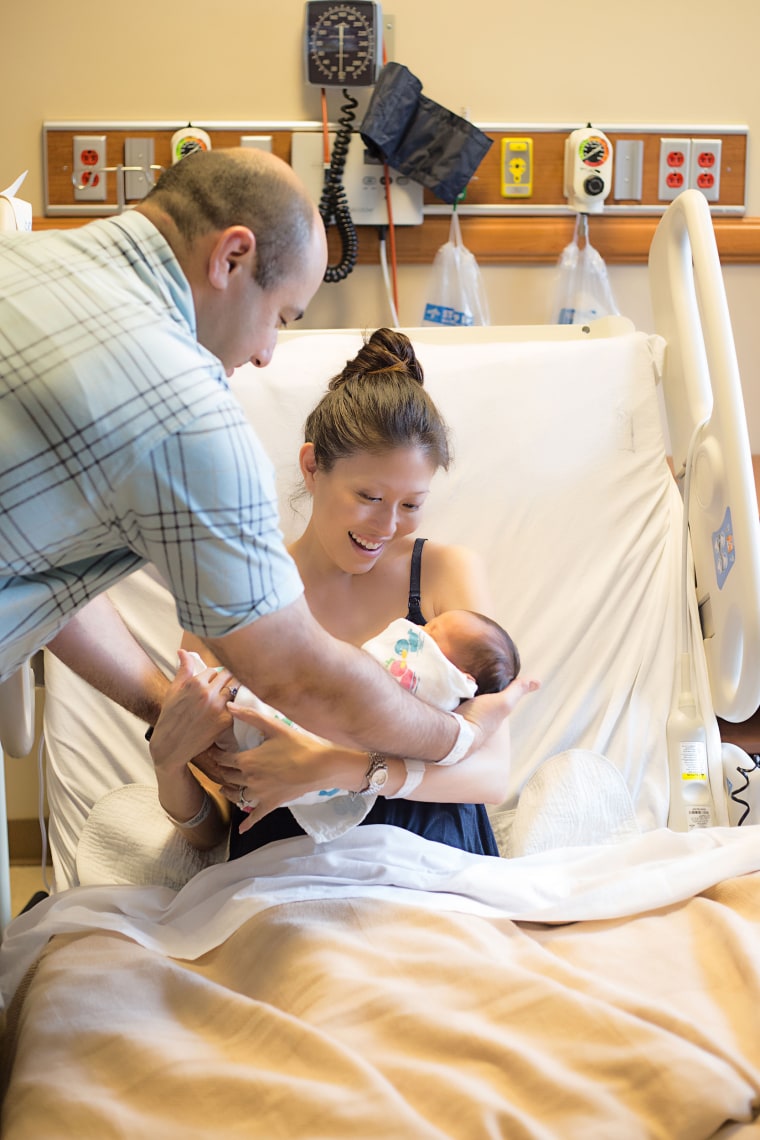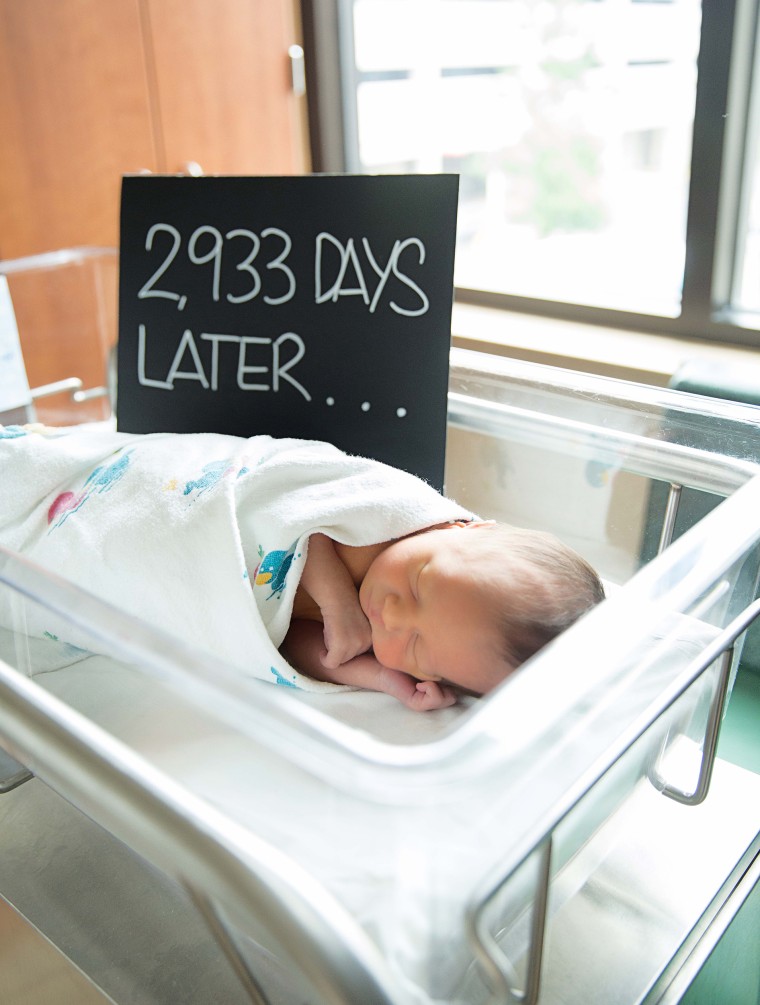When Angelica Nassar unexpectedly became pregnant at 29, she felt thrilled. She always dreamed of having a family even though she spent most of her 20s focused on her career. But then she miscarried. And, suddenly, having a baby seemed harder than she imagined.
“It really opened our eyes,” Nassar, 40, of Houston, told TODAY. “I never thought I would be one of those people who would have trouble.”

Nassar and her husband, Ramzi, visited a reproductive endocrinologist and she started in vitro fertilization (IVF) treatments. In eight years, Nassar underwent 12 rounds of IVF. As she struggled to get pregnant, she felt sad and isolated.
“It’s difficult because not a lot of people talk about miscarriages and they don’t talk about trying things like IVF,” she said.
But Nassar discovered RESOLVE, the National Infertility Association, and became active in her local chapter. Meeting other women who struggled with miscarriages and infertility helped her grapple with stress.
“There is an emotional aspect,” Nassar said. “Eight years is a long time to go through anything.”
It took 2,993 days for her to become pregnant with their first son, also named Ramzi, who was born in 2016.
“We counted every day,” she said.
Nassar, who is pregnant with her second son, is sharing her story as part of a campaign called #TalkAboutTrying, which launched during National Infertility Awareness Week from April 22 to 28. Ferring Pharmaceuticals started the hashtag to raise awareness about infertility and is donating a dollar to RESOLVE for each post until May 11. Infertility affects one out of eight couples in the United States, but people often avoid discussing it because of the stigma attached to it.

“Most people with infertility don’t tell anyone they are going through it,” said Alice Domar, a psychologist at Boston IVF. “Most don’t even tell their mothers because there is a deep sense of shame.”
When couples can’t become pregnant they often feel like failures. Sometimes it's tied to biological expectations — women feel like they should just be able to carry a baby and men feel like they should just be able to impregnate a woman. All this stress impacts the couple greatly.
“It is so tied to relationships and self-esteem,” Elizabeth Grill, the director of psychological services at the Ronald O. Perelman and Claudia Cohen Center for Reproductive Medicine, told TODAY. “They feel they are letting their partners down and their families down.”
And, many women struggle with their mental health.
“Most women going through infertility have psychiatric levels of anxiety and depression,” said Domar.
Few women seek treatment for that because they’re so afraid to disclose their problems. What’s more, when people do reach out to friends and family, they hear insensitive suggestions, such as “just relax and you’ll get pregnant” or “you can just adopt.”

“Many women feel such a profound sense of loss through the experience of infertility and part of that is dealing with people in their lives who are well intended, but come off all wrong,” Grill said.
They hope #TalkAboutTrying will encourage women to share their experience and connect to others like them — or even experts if they need it.
“It really works to foster hope and also reduce the depression and anxiety,” Grill said.